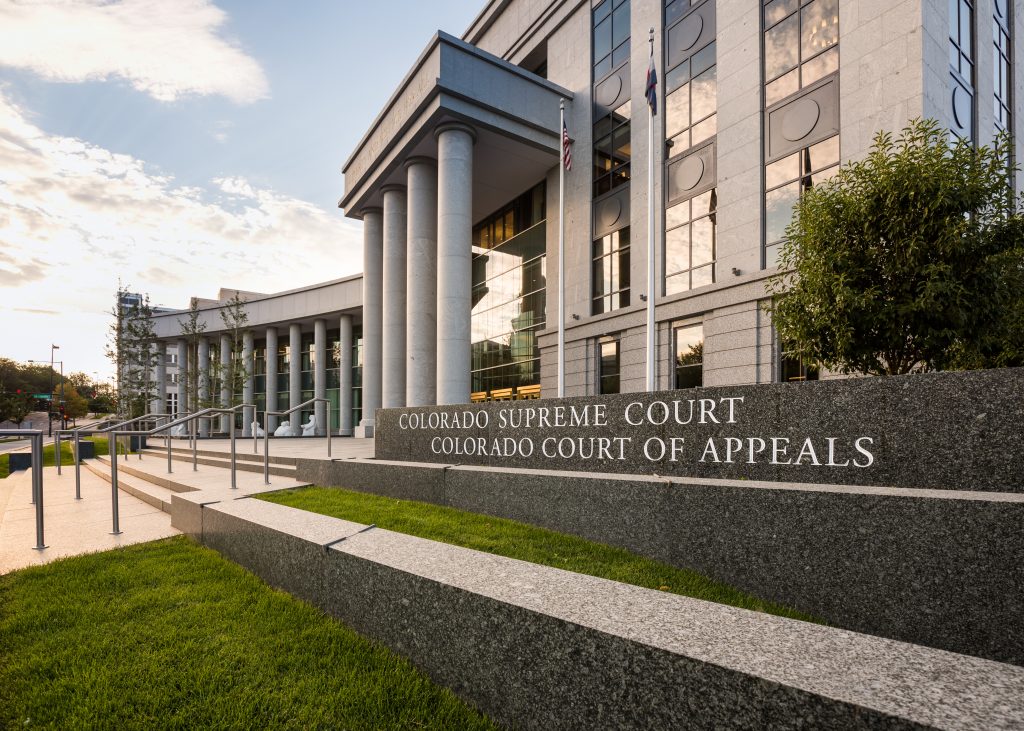 Colorado Real Estate Appeals Attorney
Colorado Real Estate Appeals Attorney
Why You Need An Experienced Colorado Real Estate Appeals Attorney
Due to the unique nature of real property, Real Estate issues often must be litigated beyond the trial court.
RVM Law, LLC is experienced in handling appeals beyond the trial court throughout Colorado. Retaining an attorney experienced with the appellate system in Colorado is necessary for a number of reasons, particularly when handling a Real Estate dispute. If you are the party initiating the lawsuit, you often have some control over the venue and court where the lawsuit is filed. You need an attorney knowledgeable about the appellate rights and procedure involved so you can make an informed decision about the proper venue for your case and the appellate remedies available in that venue if an appeal becomes necessary.
Examples of Issues Frequently Ending In Appeal:
- Foreclosures
- Lease disputes
- Contract Disputes
- Performance breaches
- Claims for money damages
- Boundary and Title disputes
- Easement/Access Issues
- Lien Disputes
How Real Estate Appeals Work
Adverse decisions in a trial court or administrative agency in a Real Estate case can negatively impact you, and you need an attorney who has experience at the appellate level in Colorado. If a judgment entered against you following a trial you have a very short time to make crucial decisions that may impact you for years.
The appellate process is very different from a trial. If there was a legal or factual error during the proceedings in your Real Estate case, you may have the right to file an appeal. These are some common reasons why people file appeals:
- Errors of law in the trial court
- The denial or granting of injunctive relief in the trial court affecting property rights.
- Various errors in evidentiary rulings resulting in prejudice.
- Failure to comply with due process in administrative determinations
If a money judgment enters against you following a trial, you will have a very short timeframe in which to review your appellate rights before the opposing party can begin to collect on the judgment. If you are in this situation contact RVM Law, LLC immediately so that we can help you address your appellate matter as soon as possible.
County Court Appeals
Certain decisions or final judgments entered by a Colorado County Court may be appealed as of right to the District Court sitting in that county only. A single District Court judge will determine the appeal following a limited briefing schedule and a review of the County Court record. An appeal from a County Court judgment must be perfected in a very short time and there is no right to appeal to the Colorado Court of Appeals from rulings or judgments from the County Court. Colorado recently increased the jurisdictional money damages limit in County Court cases from $15,000.00 to $25,000.00. The increase in jurisdictional limits in County Court cases means more and more matters will be decided in the County Courts and more appeals to the District Court from these decisions will follow. Should you lose your appeal in the District Court the remaining appellate option is to submit a petition for writ of certiorari to the Colorado Supreme Court. The Colorado Supreme Court is not obligated to review these cases, and likely will not review a District Court appellate decision unless it involves a unique issue of law that the Colorado Supreme Court feels should be addressed generally.
In addition, County Courts do not have jurisdiction to determine boundary disputes and title to real property in Colorado. If your case involves complex questions of law concerning real estate, you may be better off filing the case in the District Court even if the amount of money damages is below $25,000.00 so that you have an automatic right to appellate review in the Colorado Court of Appeals rather than by a single District Court judge sitting in review of the County Court decision.
District Court Appeals
The District Courts in Colorado are authorized to determine real estate title and boundary issues and there is no jurisdictional limit on the minimum or maximum amount of money involved in cases filed in the District Court. A matter seeking resolution of a boundary or title dispute must typically be filed in the District Court located in the county where the real property sits. Moreover, the District Courts are governed by the Colorado Rules of Civil Procedure which provide more avenues for resolving real estate issues than the limited tools provided by the County Court Rules of Civil Procedure.
Final judgments and some interlocutory orders from the District Court may be appealed as of right to the Colorado Court of Appeals. Appeals from the District Court are typically determined by a three judge panel assigned by the Court of Appeals following a detailed briefing schedule. RVM Law, LLC often recommends any real estate dispute of consequence be filed in the appropriate District Court so that the matter may appealed to the Colorado Court of Appeals if necessary. In addition, if your matter involves seeking a preliminary injunction involving real estate, you should likely seek such relied in the District Court, rather than the County Court, since the Colorado Court of Appeals can review a denial of a preliminary injunction before there is a final judgment on the merits of the underlying District Court lawsuit.
Should you lose with the Colorado Court of Appeals, you may submit a petition for writ of certiorari to the Colorado Supreme Court. Again, the Colorado Supreme Court is not obligated to review these cases, and likely will not review a Colorado Court of Appeals decision unless it involves a unique issue of law that the Colorado Supreme Court feels should be addressed generally.
Colorado Supreme Court Appeals
Decisions from the Colorado Supreme Court form the ever evolving common law in Colorado touching on many topics involving real estate and often involve issues of procedural and statutory interpretation.
Most appeals in Colorado end by a decision from the Colorado Court of Appeals either affirming or reversing various decisions or judgments of the District Court, or a single District Court judge affirming or reversing various decisions or judgments of the County Court. However, the Colorado Supreme Court accepts a limited number of appeals from decisions of the Colorado Court of Appeals and District Court's sitting as the appellate court for County Court determinations. The Colorado Supreme Court is not obligated to take up these appeals but rather chooses a select number each year following petitions for writ of certiorari.
In addition, the Colorado Supreme Court has authority to decide various interlocutory rulings of the trial courts (both County and District) pursuant to an interlocutory appellate remedy known as a C.A.R. 21 appeal. A C.A.R. 21 petition to the Colorado Supreme Court may be a viable option if a substantive issue in a real estate dispute cannot be resolved by the final trial without severe prejudice to the affected party prior to trial. Again, the Colorado Supreme Court has discretion to accept C.A.R. 21 petitions, and rejects the vast majority of such petitions. You need an attorney experienced with C.A.R. 21 petitions who is prepared to pursue the issue directly to the Colorado Supreme Court if it is necessary.
Administrative Appeals
Many issues in Colorado involving Real Estate are determined by various administrative panels. For example, zoning disputes are typically handled by a city or county zoning department which has its own procedures for disputing a zoning decision and an appellate procedure within that department for appealing the zoning decision. Following notice and a hearing in front of the local administrative board of appeals, the only remaining remedy should you lose is to seek review of the administrative decision by the District Court sitting in that county. This process can be highly technical and an experienced Colorado real estate attorney is necessary to guide you through this process.








